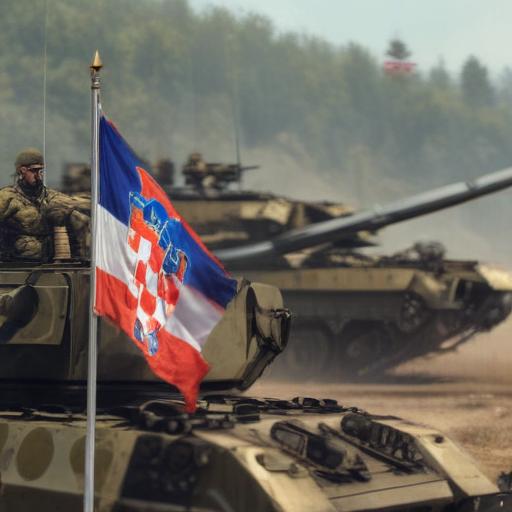Thousands gathered in Zagreb, Croatia, on Thursday to witness a vibrant military parade celebrating the 30-year anniversary of a crucial war victory. This event not only commemorated the past but also highlighted Croatia’s intentions to enhance its military capabilities through a potential loan from the European Union’s defense fund.
The festivities featured an impressive flyover by French-made Rafale jets and involved 3,400 army personnel, alongside police units, emergency services, and war veterans. Concurrently, navy battleships made their way through the Adriatic Sea at Split, showcasing Croatia’s maritime strength.
Prime Minister Andrej Plenkovic emphasized the transition Croatia has made from eastern to western military technologies, aligning more closely with its partners and allies in NATO and the EU, illustrating the nation’s commitment to advancing its defense capabilities.
Historical context is vital to understanding the significance of this event. In August 1995, Croatia launched Operation Storm, regaining territory held by minority Serbs since the country’s 1991 declaration of independence from Yugoslavia. This victory was a pivotal moment in Croatia’s war and resulted in a substantial displacement of ethnic Serbs.
Current regional dynamics remain tense, particularly with Serbia, which supported the ethnic Serb rebellion. Serbia has planned its own commemorative events, underscoring ongoing sensitivities and historical grievances.
Political analyst Zarko Puhovski commented that the parade serves dual purposes: it aims to rally public support for increased defense spending amidst escalating security concerns in Europe, and it sends a strong message regarding Croatia’s military readiness as part of a broader trend of militarization across Europe.
In light of these developments, Croatia is among the eighteen EU countries seeking billions of euros from a new program designed to bolster fiscal security measures. Plenkovic has asserted that Croatia’s expected bid may reach 1.8 billion euros ($2 billion).
The broader context fitting into European security, exacerbated by Russia’s actions in Ukraine, underscores the necessity for countries like Croatia to strengthen their defensive postures, all while striving to maintain peace and regional stability. This proactive stance might reflect Croatia’s readiness to collaborate more effectively with its allies and contribute to collective security efforts in Europe.
